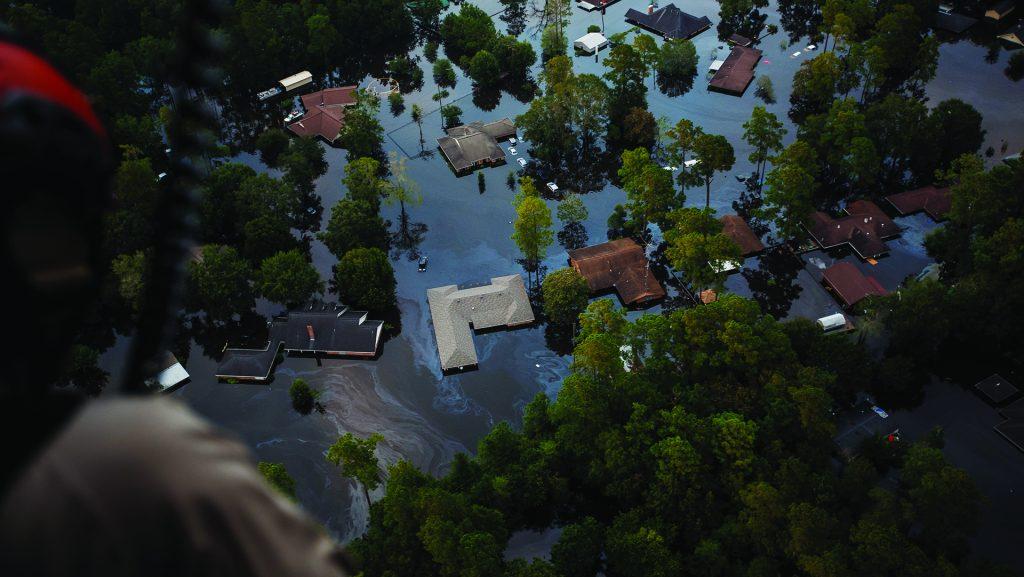FEMA funding is not available to undocumented people. A group of UI students noticed the disparity of suffering after a natural disaster in Houston.
Lucee Laursen
Hurricane Harvey crashed into the Houston area in September 2017. The devastating storm caused almost 100 deaths and $125 billion in damage, according to the National Hurricane Center. A little more than five months later, thousands of Texans are still dealing with the havoc that remains. Among those who continue to suffer are undocumented immigrants.
In a disaster situation, American citizens are able to receive help from the Federal Emergency Management Agency. The goal of the agency is to ensure that people recover from natural disasters quickly and with as little harm as possible. FEMA does this in a number of different ways; it supplies food, water, alternative shelter, disaster unemployment, cash assistance, counseling, and a whole slew of other supplemental programs.
But, if you are undocumented, according to FEMA.gov, “you will not be eligible for Disaster Unemployment Assistance.” The site goes on to explain that undocumented people can contact FEMA to get connected with outside services that may be able to help.
Because undocumented people are not eligible for most FEMA programs, their suffering typically lasts longer than that of American citizens. Most people justify this by asserting that undocumented people do not pay taxes. And because they do not pay taxes, they should not benefit from government services in the same way as taxpaying citizens. But the Institute on Taxation and Economic Policy estimates that undocumented people pay $11.64 billion in taxes. So yes, justifying withholding tax-funded programs from people who do not pay taxes is a sound argument, but in this situation, it does not apply.
Rather, our government has decided to place a higher priority on humans who are American citizens solely because they are considered citizens. But what does it mean to be an American citizen; how do people get to become citizens? Many people are born into citizenship, or their parents are citizens, or maybe they won a lottery that allowed them to become a citizen. Regardless of how someone becomes a citizen in our country, it is clearly unethical for government agencies to withhold help from people because they weren’t so lucky.
A group of UI students traveled to Houston over winter break to help those still in need. Emily VanWiel, a UI junior who went on the trip, told me that people were living with mold and destroyed roofs. But because these people did not have the support from FEMA to fix things, they had been using tarps as flooring.
“The largest reason that people’s homes don’t get fixed is that they are undocumented. They basically just can’t get help,” VanWiel said.
She believes undocumented people deserved to receive FEMA money. “They aren’t strangers taking our money, they are hard-working people who deserve help as much as those of us lucky enough to be born into this country do.”
Undocumented individuals are not strangers, they are staples in communities. They hold jobs, attend college, and pay taxes, they bring a large amount of value to so many places in the United States. It is cruel and discriminatory to withhold funding from individuals in these circumstances just because they do not have citizenship here. In a country that prides itself on accepting others, we should all expect more from our government.



